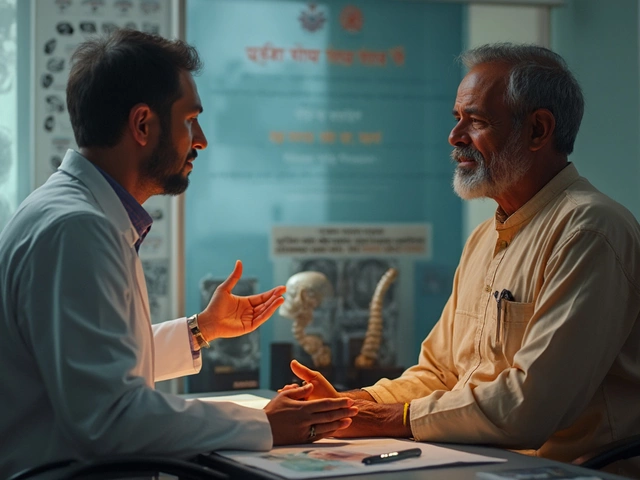IVF shots aren't as painful as most expect - most people feel only a quick pinch. Learn what the injections really feel like, how to reduce discomfort, and why the emotional weight matters more than the needle.
Read MoreIVF Medication Experience: What to Expect and How to Navigate It
When you start IVF medication experience, the physical and emotional journey of taking fertility drugs during in vitro fertilization treatment. Also known as hormone therapy for IVF, it’s not just about pills and shots—it’s about your body changing in ways you didn’t plan for, and learning to live with it. This isn’t something you read about in a brochure. It’s the 5 a.m. alarms for injections, the mood swings that surprise even your closest friends, and the quiet fear that every test result might bring bad news.
Most people don’t realize how many different IVF drugs, hormonal medications used to stimulate egg production and control ovulation during fertility treatment. Also known as fertility hormones, they include gonadotropins, GnRH agonists, and progesterone supplements are involved. You’ll likely get a mix: some to stop your natural cycle, others to force your ovaries to make multiple eggs, then more to trigger release. Each one has its own side effects—bloating, headaches, irritability, or even panic attacks. It’s not rare for women to say the meds hit harder than the actual procedure.
The IVF protocol, the structured schedule of medications, monitoring, and procedures followed during an IVF cycle. Also known as fertility treatment plan, it varies by clinic, age, and medical history you’re on can feel like a prison sentence. Some protocols last 10 days. Others stretch to six weeks. You’ll have ultrasounds and blood tests every few days, watching numbers climb or drop, hoping they match the doctor’s script. And then there’s the emotional rollercoaster—hope, disappointment, guilt, numbness—all packed into a single cycle. Many people feel alone in this, but you’re not. Thousands go through this exact same thing, every single day, in clinics across India and the world.
What helps? Talking to others who’ve been there. Keeping a simple journal of how you feel each day—not just physically, but emotionally. Knowing that side effects are temporary, even when they feel endless. And remembering that your worth isn’t tied to how your body responds to these drugs. You’re not failing if the meds don’t work perfectly. You’re not broken if you cry during a shot. This journey is hard, but it’s not something you have to do in silence.
Below, you’ll find real stories and science-backed insights about what IVF medication really feels like—from the first injection to the final wait. You’ll learn what others did when the side effects got overwhelming, how to spot when something’s more than just a normal reaction, and what to ask your doctor when you’re unsure. These aren’t just articles. They’re tools for surviving the IVF drug journey with your sanity, strength, and hope still intact.





